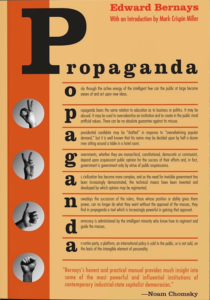
I had a very interesting conversation with a friend about both of our financial situations. He has a regular job, and at the same time, he is pursuing a new entrepreneurial business venture for himself.
He’s smart and works hard, but always seems to be focused on his financial situation, or lack thereof.
He stresses about going out for coffee too much. He worries about all of the equipment and training he is investing in for his new business venture. And, he feels stuck because he wants to move to another city or state, but worries about the financial costs.
This is typical. We all think about financial concerns yet simultaneously keep chasing that brass (gold) ring of better opportunity.
And because there is no sure footing when it comes to starting your own business venture, he is filled with anxiety and stress about financial security. Is his desire to become an entrepreneur a foolish pipe dream? And if he never tries, does that mean he has given up on himself?
The conundrum is one Albert Einstein brought to our attention many years ago. It’s the two sides of the question, “What if?”
Einstein offered that many people approach the subject of ‘what if’ from a rational mindset.
“What if I fail?”
“What if no one likes my idea?”
“What if I don’t make any money?”
“What if I lose everything because of a silly venture?”
He goes on to conclude that people approach many situations with skepticism, worry, doubt, fear, and anxiety, and before even pursuing their idea, they rationalize why it could never work. Even before they begin, they have already talked themselves out of it.
Einstein further says that we default to rational thinking and forgo our most natural intuitive nature.
“The intuitive mind is a sacred gift and the rational mind is a faithful servant.
We have created a society that honors the servant and has forgotten the gift.”
~ Albert Einstein

Einstein pursued his ideas and theories with a focus on intuitive thinking.
He postulates:
“What if I’m right?”
“What if this works?”
“What if we have been looking at this all wrong?”
“What if there is another way?”
If we look at these two examples of ‘what if’ from both the rational perspective and the intuitive mindset, we see that rational is convergent thinking, meaning that you synthesize and get rid of everything that does not work and funnel down to what will ultimately be the final result or conclusion.
Even the fictional character Sherlock Holmes thought the rational perspective to be a limiting pursuit.
Intuitive thinking is divergent. This means that there are multiple directions one can go when pursuing an idea, theory, or process. If you limit your options, as rational thinkers tend to do, you limit your opportunities. Or as Sherlock Holmes says, “You have nowhere else to go.”

And many forward-thinking people have adhered to this idea of intuitive, divergent thinking. It’s made them the Disruptors they are today.
Einstein also said,
“I believe in intuition and inspiration. Imagination is more important than knowledge.
For knowledge is limited, whereas imagination embraces the entire world, stimulating progress,
giving birth to evolution. It is, strictly speaking, a real factor in scientific research.”
~ Albert Einstein, On Cosmic Religion and Other Opinions and Aphorisms
In regard to the conversation with my friend, Warren Buffett provides a useful tool for how he looks at all of his endeavors. Buffett approaches every new venture as if he is already there. As if he is already reaping the rewards of his efforts. This, in the simplest of terms, is called manifesting… Seeing your dreams and ideas as if they already exist.
And you cannot manifest while defaulting to a rational mindset or with rational intention. Rational reasoning makes you analyze all the ways in which something might not work, and therefore you’ve already drawn your (unfounded) conclusions before ever starting.
Dreams, ventures, ideas, cannot thrive in this environment. It causes one to narrow his focus and limit his ability to move forward.
As I’ve said in the past, nothing is secure, not even a degree or a steady job.
I myself was once the head marketing director for Silicon Valley News at the San Jose Mercury News (also known as The Merc). I had stock options and a high-paying salary when the 2000 dot bomb struck. Within a few months, hundreds of us were out of a once secure job. For months people scrambled across the bay area, attending ‘pink slip parties’ in the hope of landing a new position. Hundreds of credentialed people were vying for the same position. It was brutal. So, yes, no job or occupation has security.
The question remains, when do you keep going and when do you give up?
The answer is part financial and part convictional. There is no right or wrong. Sometimes money can give you breathing room, but if your pursuit goes nowhere, so does your capital. Many venture capital companies won’t even invest in your idea until you have first taken a financial gamble yourself.
Then there are those who have no capital, yet still go after a lofty idea or dream. Nikola Tesla dug ditches while pursuing AC electricity. Napoleon Hill died broke, emaciated, and alone in his hotel room. His best-selling book, Think and Grow Rich, happened much later. Einstein worked as a patent clerk. Mark Cuban slept on a friend’s couch or the floor.
And while I teach and promote the power of Disruptive thinking with everything I know, it is not a sure thing.
So, what’s the answer?
I can offer you one promise. After many years of research, I can confidently conclude that those people who pursued an ungrounded idea or concept are the ones who have changed the direction of the world. In every field, if there wasn’t a Disruption, there could never be innovation, growth, opportunity, or even prosperity. Disruption must and will always come first.
You must, at the very least, allow yourself to cultivate your intuitive mindset. You do not need to forgo rational thinking, but society has it wrong. It cannot be the dominant thinking style. You’ve been conditioned to think so, but this is not the case.
A good balance of intuitive to rational thinking might be something like 60/40, or 70/30, but never 50/50, (or what most individuals do, 0% intuitive to 100% rational). That just doesn’t work.
It’s why Disruptors seem so rare and unique. It’s because so few of us take the time to cultivate and nurture our intuitive mindset.
Take time to develop your intuitive gifts. At the very least it will never lead you astray and when strong, it will never let you down.
But like the old adage of the bamboo root, it may take a while before you can enjoy the fruits of your efforts. You must continually nurture and tend to it in order to strengthen a very powerful and supple intuitive mind.
Social media has created a sinkhole that will eventually lead nowhere. We wrongly honor and admire social influencers and money chasers. Part of the reason is that, historically, our system doesn’t provide for or support the hard-working middle class, and so we are left to struggle and scrape to support ourselves and provide for our families.
We see veterans in hardship. We see senior citizens who can barely get by. We see hard-working families scrimp and save just to pay bills and put foods on the table that aren’t necessarily the healthiest, but the most affordable.
We envy those with material wealth. Unfortunately, we have been sold a bill of (empty) goods. Read Propaganda by Edward Bernays and learn who’s pulling your strings.

You need to take back the power. And the only way to do this is to cultivate your Disruptive, intuitive, and genius mindset.
Genius comes from intuition. IQ is intelligence. One is creative, inventive, adventurous, and explorative. The other is knowledge acquired. Knowing things is great. Creating things that benefit everyone is genius.
Everyone says Einstein was intelligent except Einstein. He (modestly) said that he was just passionately curious. Initially, Einstein, Faraday, Ramanujan, Turing, and Boole didn’t solve things with intelligence. They used intuition to reach their conclusions. Only later did math experts vet their ideas to be sound.
Learn to cultivate your inner intuitive genius to discover, learn, and create, then you can use what you now know to grow and shape your life and possibly the lives of others.